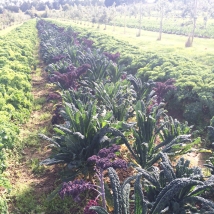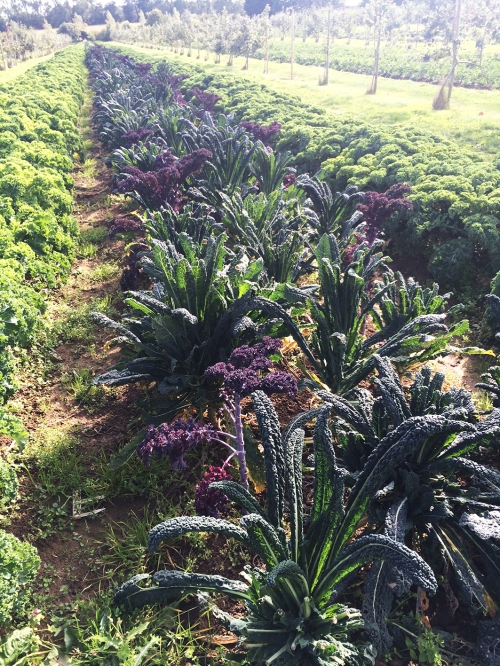 The following is a manifesto from the Soil Association that seeks to make government recognise the importance of prioritising the way we farm and the huge impact it has on public health, the enironment, animal wealthfare and the health of our soils. Send it to your MP, please repost so that more people are aware of the work of the Soil Association.
The following is a manifesto from the Soil Association that seeks to make government recognise the importance of prioritising the way we farm and the huge impact it has on public health, the enironment, animal wealthfare and the health of our soils. Send it to your MP, please repost so that more people are aware of the work of the Soil Association.
You can become a member for under £10 a month or a corporate sponsor click link
You can write (send this mnifesto) to your MP here
From: Helen Browning Chief Executive http://www.soilassociation.org
“The Soil Association calls on all parties to give food and farming a higher priority than ever in their manifestos. As the UK prepares to leave the EU, the next Government will have an opportunity to produce an agricultural policy for the first time in decades. This must fully recognise the importance of food and farming to public health, our environment, and the economy.
We urge all political parties to put climate change, public health, soil protection and farm animal welfare at the centre of their food and farming vision – and to adopt the following seven policies in their 2017 manifestos. Stronger working across departments and with devolved administrations, and better resourcing of DEFRA, is also essential.
Our recommendations cover food production (farming and land use) and consumption (public health and diets). We would be very pleased to provide further information on anything contained in this document. Some of these proposals build on a recent Soil Association report on post-CAP priorities.
- Invest in healthy soils – though soil stewardship payments, mandatory soil testing, incentives for more grass and clover, and agroforestry
The fundamental importance of soil health to farm productivity, food security, climate change and public health has been neglected for far too long. Protecting and restoring soil health needs to be at the very heart of agricultural policy. Current global and national soil health commitments provide a starting point but must be urgently accompanied by funding and delivery. Soil stewardship payments would incentivise farmers to increase the organic matter in the soil – including through existing farm assurance schemes such as organic and LEAF. A new well-maintained national soil database should be created with regular soil organic matter monitoring and reporting by farmers. Investment in soil health research, data collection and monitoring should be a priority.
- Zero carbon farming by 2050 – a commitment to ensuring the agriculture and food sector plays its part in tackling climate change, in line with the Paris Agreement
The next Government should adopt a bold approach to cutting greenhouse gas emissions from the food and farming sector, seeking to achieve net zero greenhouse gas emissions by 2050. It should accept the advice of the Committee on Climate Change for a stronger policy framework for agriculture emissions reductions, both to 2022, as current progress is not on track, and after 2022 – moving beyond the current voluntary approach of providing information and advice. This should include a new agroforestry strategy, alongside more forest and woodland establishment on marginal land. Livestock emissions must be tackled -including through the encouragement of dietary change. All trade deals must be designed to be fully compatible with the Paris Climate Change Agreement and the Sustainable Development Goals.
- Funding for farmer-led research – allocate 10% of the current R&D budget for innovative agriculture projects led by farmers themselves
The success of UK agriculture post-Brexit will depend on innovation by farmers. The UK spends around £450 million a year on agricultural research and innovation yet only a fraction of this goes to practical projects led by farmers. The next Government should announce a dedicated farmer innovation fund with a budget of at least 10% of the UK’s public agricultural research and development budget. This should be accompanied by innovation support services to help farmers apply and make the most of new funds, building on experience from other countries of doing this through the European Innovation Partnership (EIP-Agri), and of home-grown initiatives such as Innovative Farmers. The next Government should reward practical research by incentivising individual researchers and institutions to pay more attention to the impact of their research, for example, through awards schemes for researchers working on farmer-led projects; training; and involvement of farmers and practitioners in reviewing research grant applications.
- Stronger support for organic farming – building on the current system to increase the amount of land farmed using organic methods to benefit the environment and improve animal welfare, and to meet growing consumer demand for organic food
The public benefits delivered by organic farming have been well documented by independent research over decades. They include more wildlife and biodiversity, healthier soils and carbon storage, flood protection, clean water, lower pesticide and antibiotic use, more jobs. Whilst only 3% of UK farmland is organic, in some other countries, it accounts for up to a fifth of production – setting new norms for policy, business and the public. The next Government needs to prioritise the expansion of organic farming as a central plank of agricultural policy. This should include maintaining, improving and expanding the organic conversion and maintenance payments, ensuring agricultural colleges offer more courses in organic and agroecological farming practices alongside new organic apprenticeships, and maintaining the legal basis for organic standards – ensuring ongoing alignment with the EU organic regulation.
- A ‘good life’ for all farm animals within 10 years – setting a new welfare framework for all farm animals supported by the mandatory method of production labelling, stronger regulation of farm antibiotic use, and public investment to help farmers make the transition.
The next Government should commit to all farm animals leading a ‘good life’ as defined by the Farm Animal Welfare Council – meaning that animals can exercise natural instincts and follow their urges to care, graze, root and play. Incentives and funding for investment in farm infrastructure should be provided to help livestock farmers make the transition and to ensure investment in extensive, low-input systems a more attractive option for investors. Extending mandatory method of production labelling to all meat and dairy, as proposed by Labelling Matters, would provide consumers with the information they deserve, level the playing field for higher welfare products and grow this important market – allowing more farmers to shift from volume to quality production. The next government must put animal welfare at the heart of policies to tackle the antibiotic crisis including a ban on the route preventative use of antibiotics and targets to cut farm antibiotic use as proposed by the Alliance to Save our Antibiotics.
- Invest in child health – commit to creating an environment where it is normal, easy and enjoyable for children and young people to eat well.
Last year the Health Select Committee called for ‘brave and bold’ action to improve the dietary health of UK children. The subsequent Obesity Plan included a set of actions that contribute towards this goal in England. The next Government should commit to fulfilling these actions, and to building on the Plan. It should also commit to ongoing investment in school meals, including free school meals for all infants, a policy proposed by the independent School Food Plan in 2014, which received cross-party support upon its publication. The next Government should make clear that it will not tolerate the younger generation growing up with the normality of regularly consuming unhealthy food, or having no concept of where their food comes from.
- Better public procurement – to widen public access to healthier, higher welfare, local and organic food and to build stable markets for farmers and growers.
Significant programmes to improve the quality of food in the public sector, such as Government Buying Standards, Defra’s Balanced Scorecard and Food for Life Served Here, have demonstrated that public sector food standards can return substantial value to farmers and consumers. Such efforts deserve public support. The next Government should implement an ambitious procurement policy that requires use of Defra’s Balanced Scorecard across the public sector. All public procurement decisions should place a weighting of at least 60% on quality, with price not to exceed a 40% weighting. Caterers’ use of the Balanced Scorecard should be independently verified via schemes such as Food for Life Served Here. This would increase uptake of assurance schemes such as Red Tractor, LEAF, Marine Stewardship Council and organic, thereby delivering more sustainable food and farming and incentivising a ‘race to the top’, with benefits for consumers, as well as British farmers and food businesses.
Save
Save
Save
Read Full Post »

 The following is a manifesto from the Soil Association that seeks to make government recognise the importance of prioritising the way we farm and the huge impact it has on public health, the enironment, animal wealthfare and the health of our soils. Send it to your MP, please repost so that more people are aware of the work of the Soil Association.
The following is a manifesto from the Soil Association that seeks to make government recognise the importance of prioritising the way we farm and the huge impact it has on public health, the enironment, animal wealthfare and the health of our soils. Send it to your MP, please repost so that more people are aware of the work of the Soil Association.
